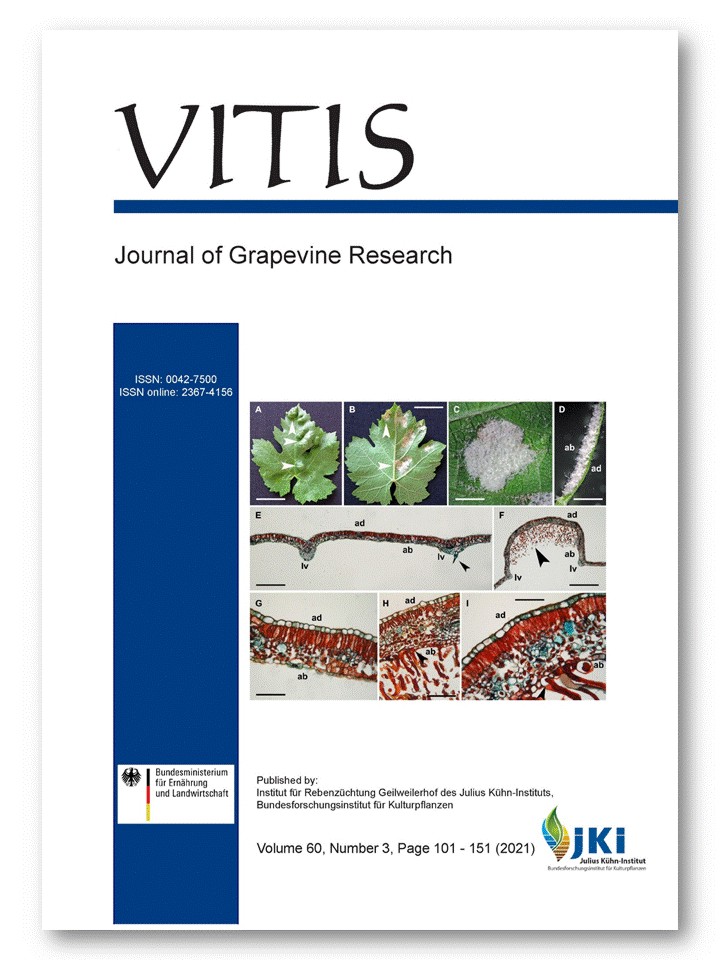Frateuria defendens reduces yellows disease symptoms in grapevine under field conditions
DOI:
https://doi.org/10.5073/vitis.2021.60.109-117Abstract
Yellows diseases in grapevine, associated with the presence of different phytoplasmas, are a major problem for growers, with no environmentally friendly means of control. Frateuria defendens (Frd), a bacterium with endophytic traits, has been shown to reduce yellows symptoms in grapevine plantlets under laboratory conditions. The objective of this study was to test whether similar effects could be achieved under field conditions. A trial was conducted in a heavily infected vineyard in northern Israel for two consecutive years. A suspension of Frd cells (108·mL-1) was applied bi-weekly by foliar spray on grapevines from bud burst to leaf senescence. Frd penetrated the leaves during the growing period but not during leaf senescence and could be detected in the leaves by PCR analysis up to 14 days post-spraying. The rate of yellows infection was lower in the treated grapevines compared to its increase in untreated grapevines and the yield of symptomatic plants was improved by 10 to 20 %. Taken together, the results suggest Frd acted as a biological control agent in vineyards under the experimental conditions tested.
Downloads
Additional Files
Published
Issue
Section
License
Copyright (c) 2021 The Author(s)

This work is licensed under a Creative Commons Attribution 4.0 International License.
The content of VITIS is published under a Creative Commons Attribution 4.0 license. Any user is free to share and adapt (remix, transform, build upon) the content as long as the original publication is attributed (authors, title, year, journal, issue, pages) and any changes to the original are clearly labeled. We do not prohibit or charge a fee for reuse of published content. The use of general descriptive names, trade names, trademarks, and so forth in any publication herein, even if not specifically indicated, does not imply that these names are not protected by the relevant laws and regulations. The submitting author agrees to these terms on behalf of all co-authors when submitting a manuscript. Please be aware that this license cannot be revoked. All authors retain the copyright on their work and are able to enter into separate, additional contractual arrangements.



